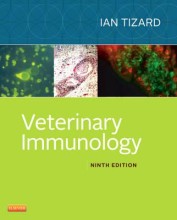Regulation of adaptive immunity
6 important questions on Regulation of adaptive immunity
Complexity of the adaptive immune system
- It has to ignore normal tissue
- tolerance = When the immunesystem does not respond to an antigen
- central tolerance = immature self-reactive lymphocytes die or alter their receptor specificity
- peripheral tolerance = Mature lymphocytes that encounter self-antigens die, are turned off, or are supressed by Treg cells
- T cells can quickly become tolerant and stay that way for 100 days
- B cells take 10 days and only stay tolerant for up tot 50 days
B cell tolerance
- If receptor editing fails to generate a non-self-reactive B cell -> it will die
- Self reactive B cells will not make autoantibodies if APCs and T cells are absent or if Treg are present
- Administration of proteins can induce tolerance
- High doses induce anergy -> low doses induce Treg cell development
B cell tolerance II
- Without the antigen tolerance fades
- prolonged response to an antigen occurs when the stimulus persists -> antigen that are rarely found in lymphoid tissues fail te induce a response
- antibodies suppress B cell responses
- specific antibodies can suppress a specific immune response
- IgG suppresses IgG and IgM
- IgM only suppresses IgM
- inhibitory receptors are very important in stopping activity of lymphocytes once they have completed their task -> they prevent inappropriate immune repsonses
- Higher grades + faster learning
- Never study anything twice
- 100% sure, 100% understanding
Regulation by the innate immune system
- host defence
- induce acute inflammation
- abundant in mucosal surfaces
- development of autoimmunity
- inflammation
- tumors
- stimulate cells to produce proinflammatory molecules
- regulates neutrophil accumulation
- tolerance induction
- suppress inflammation
- participate in tissue repair
- inhibit unwanted inflammatory reactions
- proinflammatory
- inhibits T cell activation
- proliferation
- survival
- depletion of tryptophan -> prevents growth in bacteria
Neural regulation of immunity
- Cytokines + chemokines act on the central nervous system as well
Hypothalamic-pituitary-adrenal cortical axis
- ACTH (adrenocorticotropic hormone) controls cortisol release
The question on the page originate from the summary of the following study material:
- A unique study and practice tool
- Never study anything twice again
- Get the grades you hope for
- 100% sure, 100% understanding
































